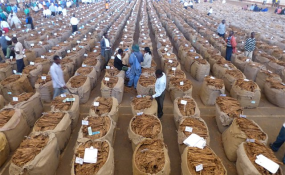The Swiss Ambassador to Zimbabwe, Ruth Huber, says investment in will remain stagnant as long as the Harare fails to compensate whites whose farms were forcibly taken without proper dialogue.
She was speaking during the Swiss National Day Tuesday.
Huber told journalists that although investment from Switzerland has slightly increased in Zimbabwe, the difficulty has been to attract new investment in the current political and economic environment.
The Swiss envoy described the political environment as polarized.
She said potential investors in Switzerland inquire about previous investors and they hear about Swiss agricultural farmers that have lost their farms without any compensation until today.
“As we all know the frame conditions are not very favourable for attracting new investment. Cases of previous investors in agricultural production are unresolved.
“The current economic environment in the country is not easy for the private sector. The loss of farms by white commercial farmers is an issue that makes new investors hesitate. They are not so sure if the law is sufficient enough to protect their businesses.
“As much as investors out there would want to come and invest, they want to see how the elections will go. Investors are closely looking at the political situation in Zimbabwe as the country gears up for the 2018 elections. They want to see if elections are going to be free and fair as well as peaceful.”
The Ambassador, however, expressed hope in the compensation issue which she said is on-going as the two countries are still engaging in dialogue to see how some of the farmers from her country could be paid.
Huber said it is therefore important to acknowledge the positive contribution and the continued commitment of Swiss companies present in the country and the impact they are making through their know-how, investment, production of quality products and job creation.
In year 2000, the government embarked on a countrywide offensive land reform programme where white commercial farmers were forcibly evicted from their farms and lost millions of dollars for developments made on the properties as well as for agricultural output which the government has not paid for.
The government insists that Britain is responsible for the compensation of the farmers through the agreements made during the Lancaster House Conference in 1979.
A fortnight ago, finance minister, Patrick Chinamasa, claimed that he had paid some white farmers. However, his claim appeared to have shocked the whites who said they had not seen a cent from government.

